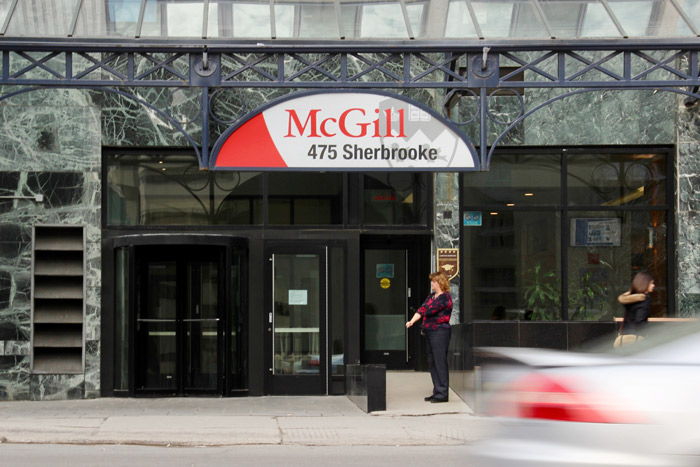On March 23, the Association of McGill University Support Employees (AMUSE) reached a tentative agreement with the McGill administration regarding the employment of floor fellows. AMUSE Unit B represents floor fellows and has been bargaining with the university since October 2014 on floor fellow salaries, values, and job security. AMUSE members will meet at a General Assembly (GA) on April 6 to vote on the approval of the tentative agreement. If AMUSE members vote to approve the tentative agreement, negotiations between the university and AMUSE Unit B will come to a close.
According to AMUSE President Claire Michela, the tentative agreement will create an hourly wage of $13.15 for floor fellows and establish a letter of agreement about floor fellow values, including harm reduction, anti-oppression, and respect. The agreement will also enhance job security and ensure that floor fellows will not immediately lose their room and board in the case that they are fired. The GA will determine whether floor fellows who were employed between 2013 and 2016 will receive remittance for their unpaid hours, in addition to the terms of the agreement.
McGill floor fellows initially filed with the Commission des Normes du Travail (CNT) for back pay in 2013. Despite the CNT ruling in favour of the 2013 complainants, the university refused to provide floor fellows with remuneration and appealed the ruling. Back pay complaints, in combination with disputes over their wages, values, and job security, led floor fellows to unionize and join AMUSE in Fall 2014. A tentative agreement was reached and drafted on Dec. 6, but the administration subsequently withdrew from the contract. AMUSE filed an injunction with the Superior Court of Quebec, claiming that McGill was in violation of Quebec labour laws, but the injunction was denied by the court, leading AMUSE and McGill to re-enter negotiations.
If the latest tentative agreement is approved, floor fellows who were employed between 2013-2016 will receive up to 30 per cent of their original claim, depending on the year of their employment. AMUSE members will vote on both the tentative agreement and the settlement of back pay claims as a combined package.
“The settlement that we came up with may or may not be accepted by [floor fellows], but it’s all or nothing now that we’ve come to the [collective agreement],” Michela said. “[….] It’s conceivable that someone might think that [the settlement] wasn’t enough.”
Isabelle Oke, vice-president Floor fellow at AMUSE, consulted with floor fellows on March 30.
“[There is] excitement that something is happening, but also a lot of wondering where other people are at,” Oke said. “Because this involves so many people, and a lot of people who have already graduated, it’s hard to have one way of communicating about how people are feeling about this.”
Despite the variety of interests and demands involved in the tentative agreement, Oke is confident that the vote will pass.
“From what I’ve gathered, people are taking this in as a full agreement,” Oke said. “They’re taking it in for what it is, which is something that is resolving back pay and the next three years of working conditions.”
In an email to The McGill Tribune, Shuaibo Huang, U3 Arts and a floor fellow at the Carrefour Sherbrooke residence, wrote that he plans to vote ‘yes’ during the upcoming GA.
“I am very disappointed that our current working condition is illegal,” Huang wrote. “I and many other floor fellows would [like] to see the [floor fellow] values, which McGill has already agreed upon, to be reflected in the final collective agreement [….] This is one of the key reasons why I am voting ‘yes’ in the incoming GA.”









